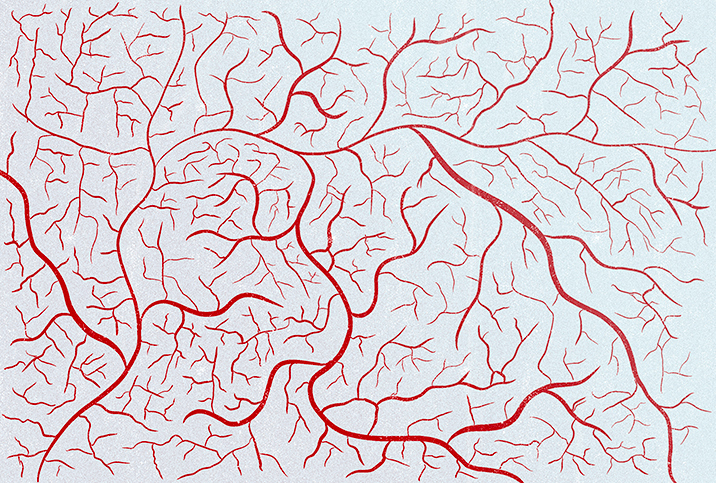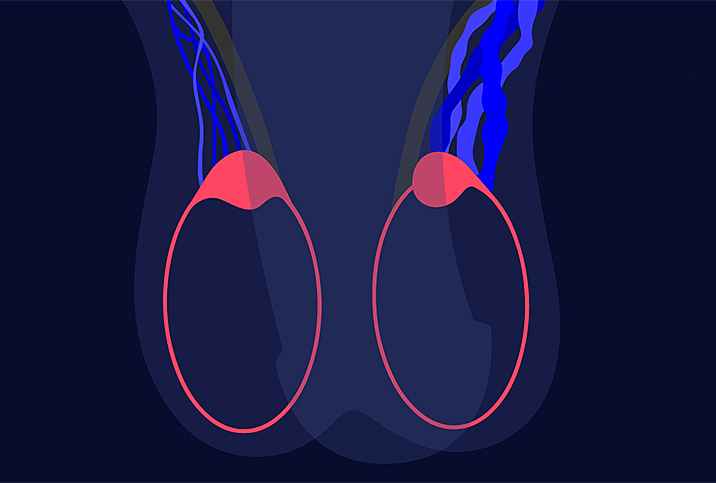What Happens if I Get Varicoceles?

Changes to a guy's anatomy are likely to make him nervous—even more so if he notices a surprising shift in his genitals. One condition to be on the lookout for is a varicocele, or an enlarged vein in your scrotum. It's important to learn more about this health issue and what you can do to reduce pain and symptoms so you can keep potential fertility-related problems at bay.
What is a varicocele?
A varicocele is an enlargement of a vein within your scrotum, or the skin that holds your testicles in place. Varicoceles are similar to varicose veins in the legs. They most commonly occur on the left side of the scrotum, can get larger and more noticeable over time and may lead to testicular shrinkage. Varicoceles affect about 10 to 15 out of 100 males.
What are the symptoms of varicoceles?
Varicoceles are often described as looking like a "bag of worms," but they don't usually produce symptoms. If you do have symptoms, you may notice:
- Pain
- Swelling
- Dull or sharp discomfort
- Pain with physical activity and standing
- Discomfort that worsens throughout the day
- Impaired fertility
- Pain relief when you lie on your back
Men who are hoping to start a family should be aware of these symptoms or get a physical exam because varicoceles may be associated with infertility, though the link is uncertain. For example, 4 in 10 men tested for fertility problems have a varicocele, yet 8 in 10 men who have a varicocele don't have fertility issues.
What causes a varicocele?
The cause of varicoceles isn't entirely clear, but they often appear during puberty when valves inside scrotum veins prevent proper blood flow. The result is pooled blood, widened veins and testicular damage in some cases.
Can I prevent or reduce symptoms of varicoceles?
While there's no surefire way to prevent a varicocele, some healthy habits may improve the symptoms.
Weight management
Maintain a healthy weight by eating nutritious foods, limiting or avoiding alcohol, exercising regularly and sleeping at least seven hours each night.
Lifestyle changes
Wearing an athletic supporter or supportive underwear can relieve pressure and pain. Steer clear of or reduce activities, such as intense or prolonged cycling, that trigger discomfort.
Cold packs
Applying cold packs to your scrotum in 15-minute intervals can alleviate discomfort associated with a varicocele. For enhanced comfort, wrap the ice pack in a towel before applying it to your scrotum.
How does my doctor diagnose a varicocele?
Varicoceles are simple to diagnose. Your doctor can diagnose a varicocele by reviewing your symptoms, discussing your medical history and examining your testicles. They may be able to feel the varicocele while you're resting, standing or taking a deep breath.
You might undergo a scrotum ultrasound, which uses high-frequency sound waves to create pictures of the inside of your scrotum. Semen tests can help your doctor determine whether a varicocele is affecting your fertility.
What are common varicocele treatments?
Varicoceles may not need treatment. Your doctor might recommend treatment if you experience fertility problems, changes in the size of a testicle or discomfort.
A urologist can surgically repair a varicocele to reduce symptoms, improve fertility and maximize your quality of life. If you don't need surgery, they may recommend you make lifestyle changes and carefully monitor your condition.
If you have a varicocele or suspect you have one, don't be alarmed. See your doctor but know that simple treatments can eliminate the negative effects associated with your condition.

















